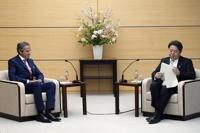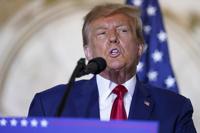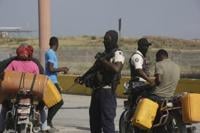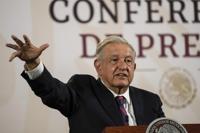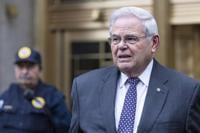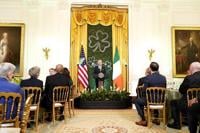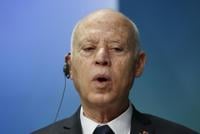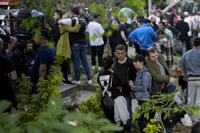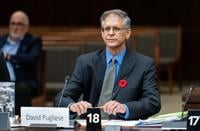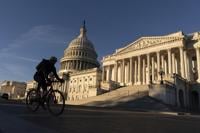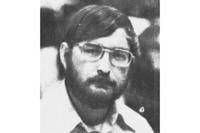TOKYO (AP) — The head of the United Nations' atomic agency is in Japan to examine discharges of treated radioactive wastewater from the ruined Fukushima Daiichi nuclear power plant, and to discuss further cooperation with Japan to promote peaceful use of nuclear energy and non-proliferation.
International Atomic Energy Agency Director-General Rafael Mariano Grossi is visiting the country Tuesday for the first time since . It also comes one day after earthquake and tsunami struck, triggering the Fukushima disaster.
"This date has a special meaning in Japan," Grossi said as he met with Japanese Environment Minister Shintaro Ito, his first in a series of talks with top Japanese officials planned for the three-day visit.
The disaster caused many difficulties, but also led to "strengthening of the links and the cooperation between the IAEA and Japan,” Grossi said.
A massive earthquake and tsunami in 2011 damaged the Fukushima plant's power supply and reactor cooling functions, and causing large amounts of radioactive wastewater to accumulate. After more than a decade of cleanup work, the plant began discharging the water after treating it and diluting it with large amounts of seawater on Aug. 24, starting a process that's expected to take decades.
The discharges have been strongly opposed by fishing groups and neighboring countries including China, which banned all imports of Japanese seafood immediately after the release began.
Japan has sought the IAEA's help with safety monitoring and evaluation to allay concerns over the discharge plan.
Grossi is expected to examine the discharge facility Wednesday after meeting with local residents. after issuing an IAEA review predicting only negligible impact from the discharges. The IAEA comprehensive report later also concluded that the discharges have so far satisfied international safety standards.
Grossi will also meet with Foreign Minister Yoko Kamikawa and Economy and Industry Minister Ken Saito to discuss cooperation in nuclear disarmament, non-proliferation, North Korea and Iran as well as peaceful use of atomic energy, Japanese officials said.
Prime Minister Fumio Kishida’s government has reversed earlier plans for a nuclear phaseout and is accelerating use of nuclear power in response to rising fuel costs stemming from Russia's war on Ukraine and pressure to meet decarbonization goals.
Japan also wants to provide financial support for IAEA's effort to protect from Russia's ongoing war, officials said.
Japan and IAEA are also cooperating on disposal of radioactive soil from Fukushima.
The Japanese government, stuck with massive amounts of soil unearthed during reconstruction and cleanup work outside of the Fukushima plant, is struggling to find disposal methods. A plan to recycle it for road construction and other public works after safety tests has met fierce protests.
The soil has been stored in an interim storage facility in Fukushima. The government has promised a final disposal plan outside of the prefecture by 2045.
A preliminary IAEA report last year supported the soil recycling plan, but stressed the need for public trust. A final report is expected this summer.


